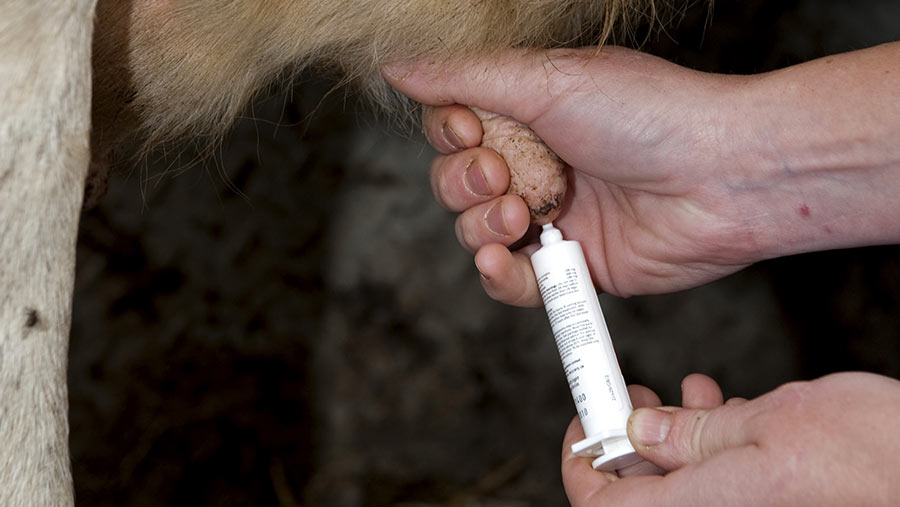Task force to cut antibiotics use in UK livestock
 © FLPA/REX/Shutterstock
© FLPA/REX/Shutterstock Industry experts are to explore ways of reducing the use of antibiotics in UK livestock production amid growing concern about the threat to human health from drug-resistant infections.
Quicker progress is needed on banning or restricting antibiotics that are vital for human health from being used in animals, warns the final report by the government’s O’Neill Review on Antimicrobial Resistance, published on Thursday (19 May).
See also: ‘Huge threat’ to human health from livestock antibiotics
Antimicrobial resistance is a huge problem that must be tackled, says the document. Drug-resistant infections and superbugs could kill 10 million people a year by 2050 – the equivalent of one person every three seconds, it adds.
Antimicrobial drugs are becoming less effective and the world is not developing enough new ones to keep up, says the final report, which follows eight interim studies. A comprehensive global action plan is needed to highlight the problem, it adds.
Meaningful targets
The document sets out 10 areas where the world should take action to tackle antimicrobial resistance. Recommendations include targets set by individual countries for antibiotics use in agriculture, giving governments the flexibility to decide how they will reach lower levels.
Responding to the report, the Responsible Use of Medicines in Agriculture (Ruma) alliance said it was setting up an industry task force to develop meaningful targets to replace, reduce and refine antibiotics use in UK agriculture.
The battle to maintain the efficacy of antibiotics required “global focus combined with local action across both human and animal medicine,” said Ruma, which works independently with organisations involved in all stages of the animal food chain.
Ruma secretary general John FitzGerald said: “The industry has long recognised the beneficial role targets can play, but is acutely aware that inappropriate targets can also be counterproductive and even lead to increased risk of resistance.”
UK focus
Mr FitzGerald said the task force would harness the expertise of specialists across different sectors and work proactively with the authorities to look at identifying effective, evidence-based goals that work for our UK livestock sectors and protect animal welfare.
A UK focus was especially important because direct comparisons between countries were never simple, said Mr FitzGerald – although he acknowledged there were important lessons to learn from experiences in reducing antibiotics use overseas.
Denmark had invested heavily to allow its pig farmers to build high-health premises. And by reducing antibiotics use in the Netherlands by nearly 60%, it was now at approximately the same level as in the UK.
“We must look at how we develop the right goals,” said Mr FitzGerald. The UK pig and cattle sectors were already building on lessons learned in the UK poultrymeat sector, which has reduced antibiotics use since setting up a detailed surveillance programme five years ago.
